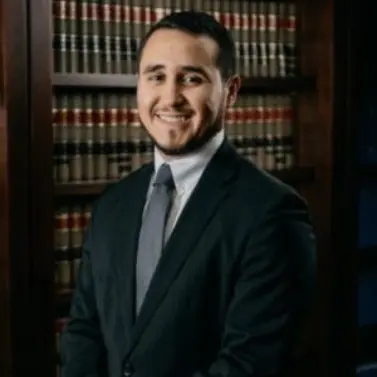Can a car driver be held responsible for a crash if the car they are driving malfunctioned? Should a car maintenance worker be at fault for servicing a car that later crashes? Are car manufacturers responsible for accidents that include vehicles they produced? Every situation is different, and where the fault lies is situational. We reached out to some professionals to have them weigh in on the conversation about who is at fault in an accident. Keep reading to find out who may be liable for these types of accidents.

Christian Meneses
Multiple Parties Can be at Fault
A car accident caused by a defective vehicle has many different factors in determining if the driver, car owner, maintenance person, manufacturer, or a mixture of those listed are at fault. In general, the driver may be at fault if they knew there was an ongoing malfunction and drove anyway, disregarding other people’s safety.
The car owner may be liable if they knew or had reason to know of a defect by the time they owned and used the vehicle. A maintenance person can be at fault if, when they performed maintenance, they knew or should have known of a dangerous defect and did not address the defect or tell the owner of it.
Regarding the manufacturer, many product liability laws can make them liable for making a defective product that caused injury to the public. With all this in mind, it is crucial to recognize that more than one of those mentioned above can be at fault simultaneously.
Fault Depends on the Defect
The party responsible for a defective car differs depending on the defect and how the defect caused an accident. If the defect was in the car when manufactured and the owner had no opportunity to learn of it, then the manufacturer may be liable. However, if the owner drove the vehicle with knowledge of the defect, the owner may be held negligent for driving the vehicle without getting the defect repaired. If the defect was the result of a bad repair job, then the mechanic who did the repairs may be liable.
The owner may also be liable if they knew that the car was not working properly but still drove it. The key to holding someone responsible is that they must be aware of the defect and fail to repair it, either by selling it with a defect, not making repairs properly, or driving the vehicle on the roadways with knowledge of the defect.
One issue faced in these cases is that proving a defect existed and caused the accident is often difficult. To make your case, it is sometimes necessary to have an expert, either an engineer or a mechanic, inspect the vehicle immediately after the accident, before it has been repaired or destroyed, which requires storing the vehicle and paying the expert to travel to the vehicle and perform the inspection on an expedited basis. This can be expensive.
Moreover, in many cases, the vehicle itself is damaged to the point where it is difficult or impossible to determine if there was a defect and if it was the cause of the accident.

Thomas J. Simeone

Nick Schrader
Three Parties Can be Blamed
In an accident caused by a defective car, three parties can be blamed: the driver, the car manufacturer, and the mechanic who performs maintenance and repairs. The decision will depend on the investigation. If the car is proven defective, the car manufacturer will be liable for charges and damages to the affected parties.
However, the driver can be responsible if they haven’t performed the routine maintenance required for their vehicle. If they have complied with these things and have proven that they have addressed any issues with the car, they need to investigate why the car’s problem was not detected. If this is proven because of the mechanic’s lack of skill and training, they must not be qualified to do these repairs and maintenance. The mechanic will also be liable for damages.
Whoever is Responsible for the Defect
If a defect in a car causes an accident, the responsibility rests with whoever is responsible for the deficiency.
If the vehicle manufacturer produced a faulty part, they’re responsible. If a parts manufacturer sold a faulty part, they’re responsible. If a service shop installed the wrong part or installed the right part in the wrong way, they’re responsible.
It’s not always straightforward to prove, though. For someone besides the driver to assume liability, you have to prove that the part was faulty when they handed the car over to the driver. Faults due to normal wear and tear aren’t the manufacturer’s responsibility.
For example, if your brakes fail because you didn’t replace them, it’s your fault, not the fault of the vehicle manufacturer.
It’s so difficult to prove defects that most of the time the driver ends up assuming the liability even though the crash wasn’t truly their fault.
Suppose a manufacturer issues a recall, as Toyota did for 2,300,000 Camrys with overperforming accelerators, and the owner doesn’t get the recalled item fixed. In that case, the liability will rest with the owner rather than the manufacturer.
However, if the incident happened before the recall or closely following the recall before the manufacturer personally contacted the owner, the fault belongs to the manufacturer.

Melanie Musson
Melanie Musson is a crash expert with CarInsuranceComparison.com.

Mark Beneke
Anyone Who Knew About the Problem
I believe it comes down to the prior knowledge over the matter. Whoever knowingly operates a vehicle or allows a vehicle to be operated that has a potentially harmful defect would be responsible.
If the defect arose from a faulty part when the vehicle was first built, I would say that responsibility falls on the manufacturer. After a few years of wear and tear, however, the responsibility would transfer to whoever has the vehicle. For example, if a dealer sold a vehicle with known safety issues, the responsibility should be on them if an accident is caused because of it. If a technician rigged a car incorrectly due to negligence, they should be held responsible as it is their negligence that caused the accident.
Lastly, the owner could be responsible as well if they fail to maintain their vehicle properly. There are millions of people out there that ignore the warning signs that their vehicles give them and are surprised when a tire pops, an axle gives out, or the car stalls as they drive.
This is a crowdsourced article. Contributors' statements do not necessarily reflect the opinion of this website, other people, businesses, or other contributors.
